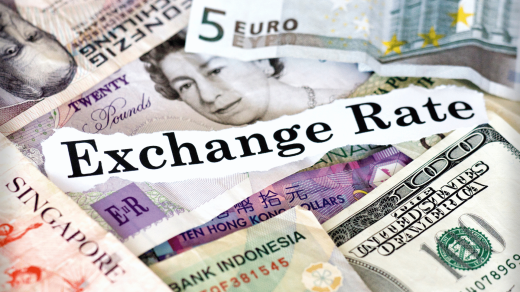The World's Most Beautiful Banknotes
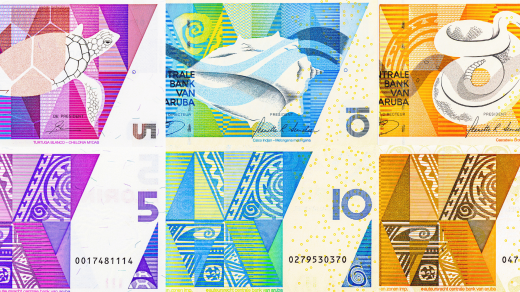
You use money to buy groceries, book flights, and pay the bills. But if you look a little closer, you’ll see something else: Design. Culture. Identity.
Some currencies are miniature masterpieces that you get to carry around with you. They don’t just hold value; they tell stories and cement history.
And beyond its beauty, cash plays a vital role when traveling abroad. It’s the most widely accepted payment method, giving you independence and flexibility wherever you go. From tipping at a local cafe to paying for transportation in places where cards aren’t an option, having cash means you’re prepared for everything.
See What Our Customers Have to Say
These are some of the most beautiful banknotes from around the world:
Costa Rica
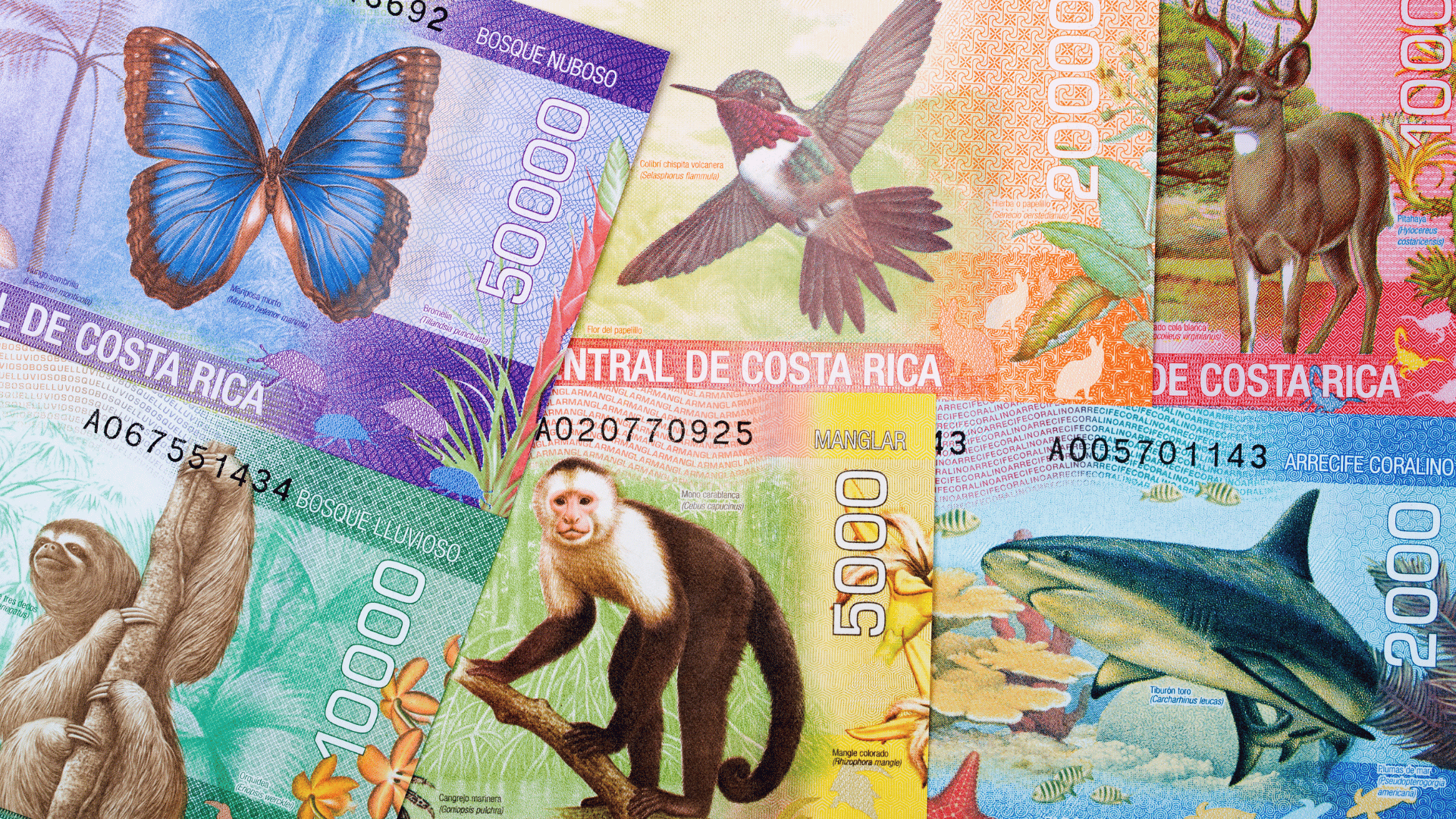
Costa Rica’s banknotes are a vibrant celebration of its rainforests, wildlife, and national pride. Jaguars, sloths, hummingbirds, and coral reefs appear across the series.
The 20,000 colones note honors Maria Isabel Carvajal, a pioneering feminist writer and educator. Known by her pen name Carmen Lyra, she was a champion for workers’ rights and public education.
All of Costa Rica’s banknotes are printed on eco-friendly materials, a nod to the country’s strong environmental values and fight for sustainability.
Canada
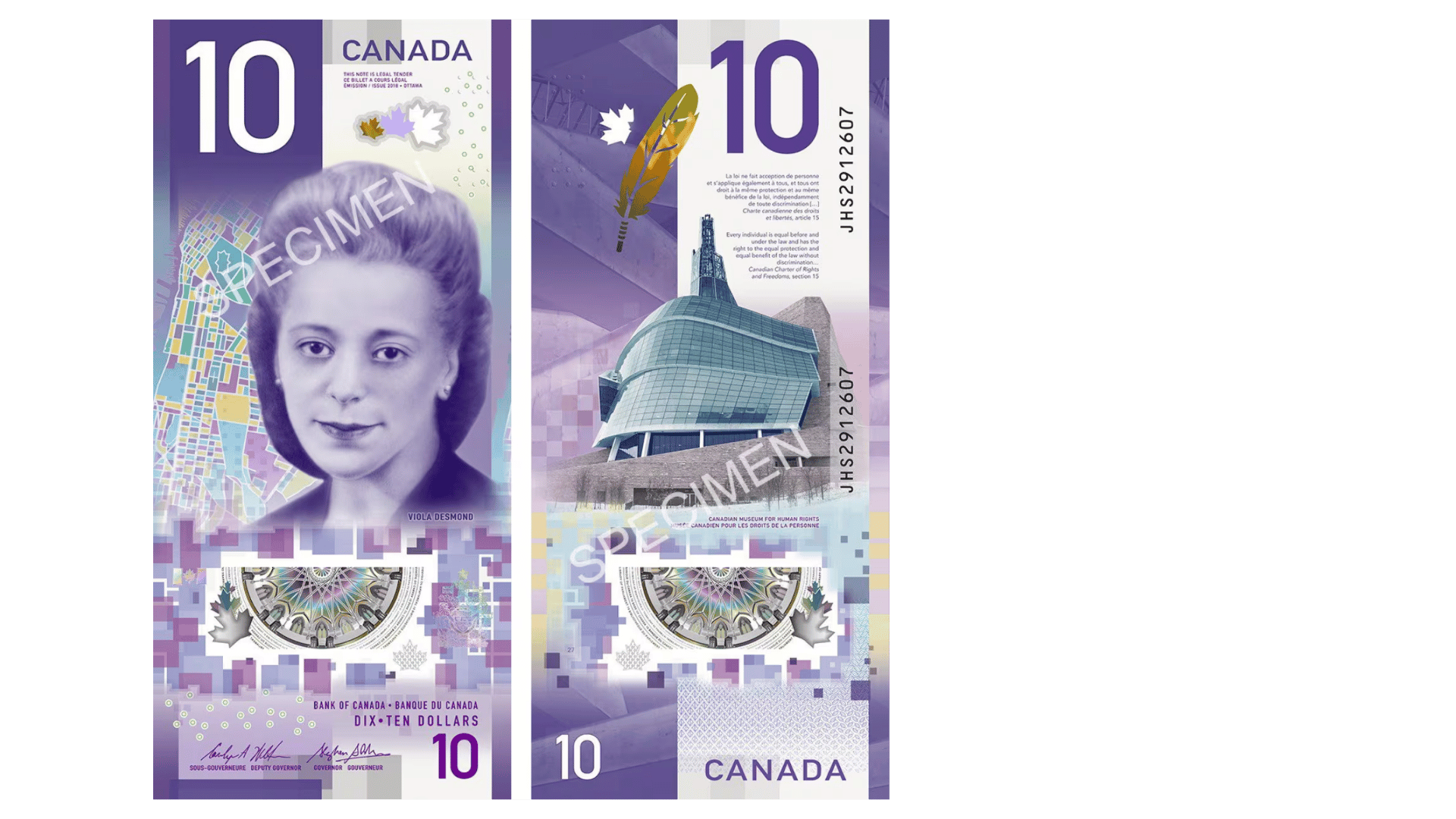
Canada’s 10-dollar bill stands out immediately for its vertical orientation, deep purple palette, and transparent security features. But what really makes it remarkable is the woman on it, Viola Desmond. In 1946, she refused to leave a white-only section in a Nova Scotia movie theatre. Her arrest became a turning point in Canada’s civil rights history.
She’s also the first non-royal woman to appear solo on a Canadian banknote.
Switzerland
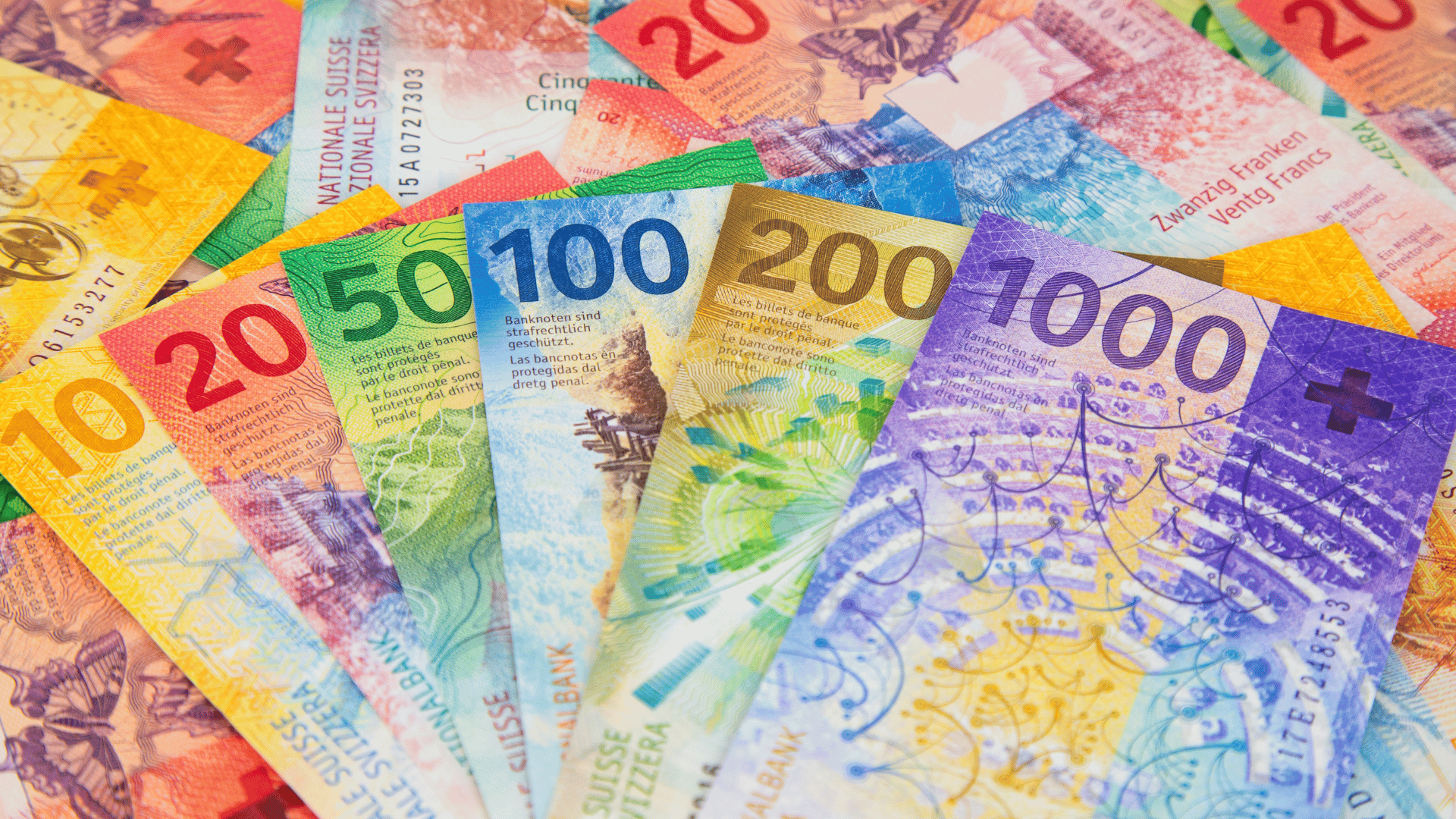
Switzerland’s ninth banknote series is a triumph of modern design and security. Each note celebrates a Swiss value such as time, light, or wind. These themes are expressed through abstract imagery and tactile elements.
The 50-franc note, for example, features wind as a concept, illustrated by a dandelion dispersing seeds across the globe. While the 10-franc note, themed around time, features a globe and clockwork gears.
Related: Switzerland Travel: Mountains, Lakes, and Things to Explore
The notes also include raised ink and microtext, making them accessible to visually impaired users.
Fun fact: Many people have made art such as sculptures using Swiss Francs because of their beauty.
Mexico
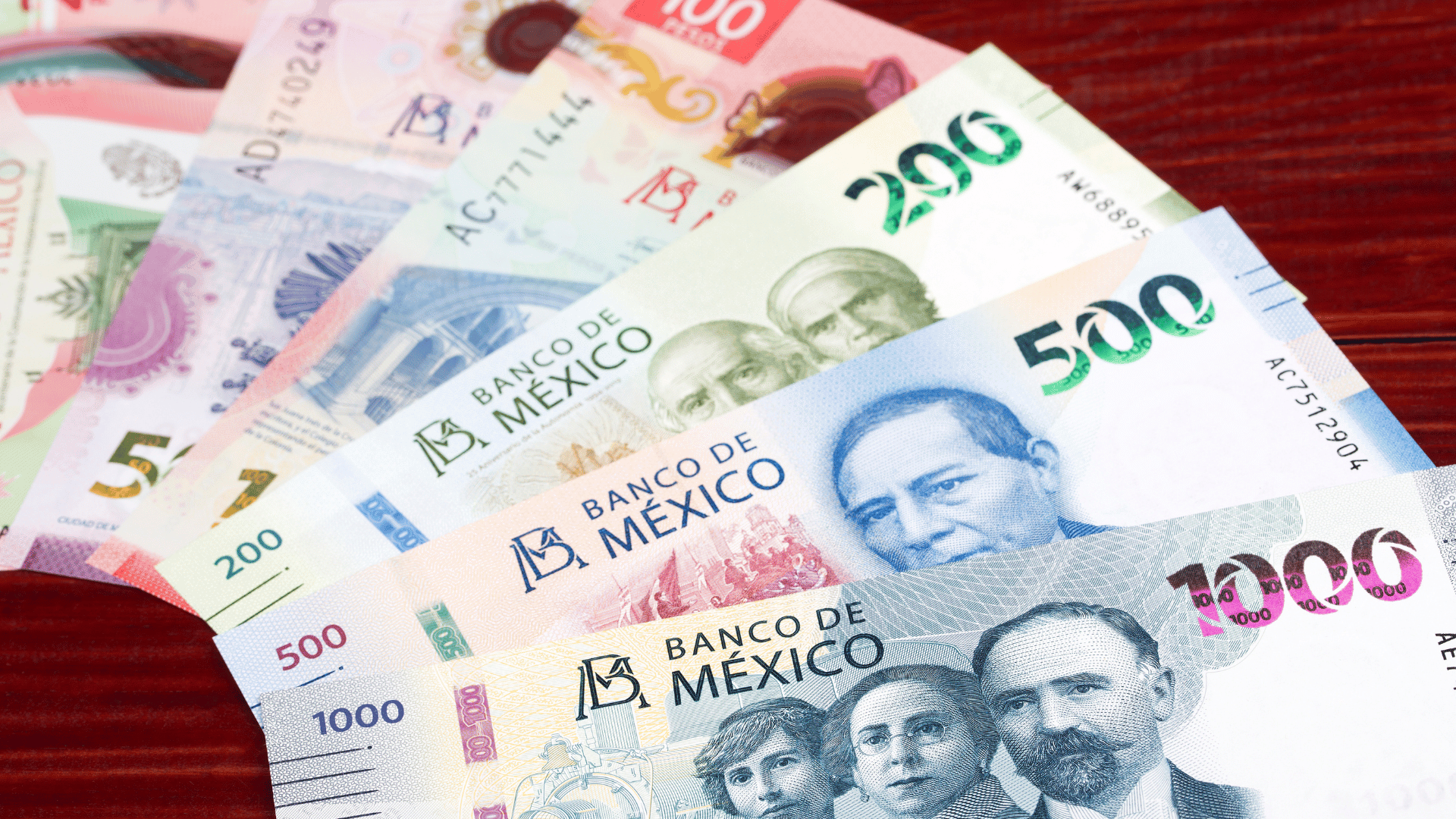
Mexico’s latest banknote series is a visual journey through its history and ecosystems. The 50-peso note features axolotl, a rare amphibian native to Mexico, alongside imagery of the ancient city of Tenochtitlan.
The 100-peso note honors Sor Juana Ines de la Cruz, a 17th-century writer and advocate for women’s rights.
Each note highlights a different historical period and region, from Mayan civilization to the Mexican Revolution.
Never miss a rate drop with our Currency Exchange Rate Tracker
Bermuda
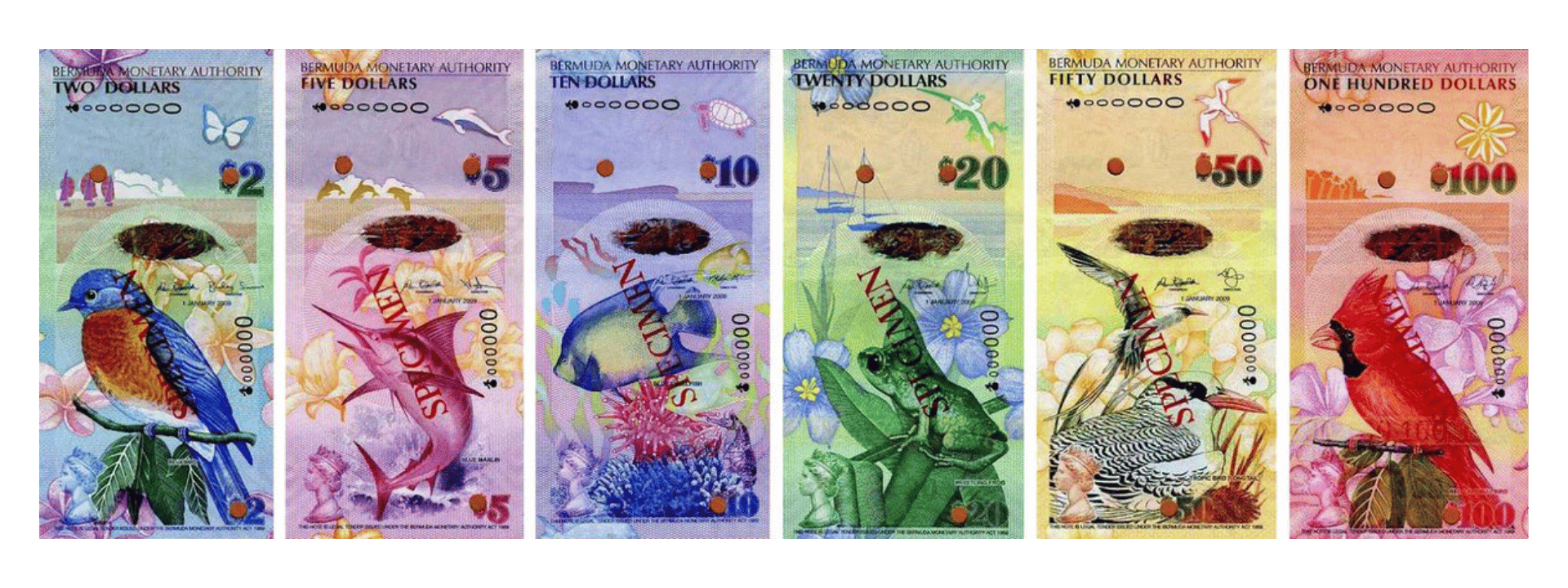
Bermuda’s banknotes look like vacation brochures, but better. Its $5 note was named the 2024 Banknote of the Year by the International Bank Note Society (IBNS), and it’s easy to see why.
The pink and purple note features a blue marlin leaping across stylized waves alongside tuna and dolphins, reflecting Bermuda’s deep oceanic identity. On the reverse, tropical flora, butterflies, and the iconic Horseshoe Bay coastline appear, as well as the Somerset Bridget, the smallest drawbridge in the world, which opens just enough to let a sailboat mast pass through.
The $2 note is also remarkable. Featuring a bluebird in flight, while the $10 bill showcases a ship navigating the Atlantic. Soft pastel tones, marine life, and colonial architecture blend into a dreamy, watercolor-like design.
Currency Tip: If you’re visiting Bermuda, cash is a must for small purchases like souvenirs, beachside snacks, and taxis. Most vendors prefer Bermudan dollars, and ATMs can be limited outside major towns.
Australia
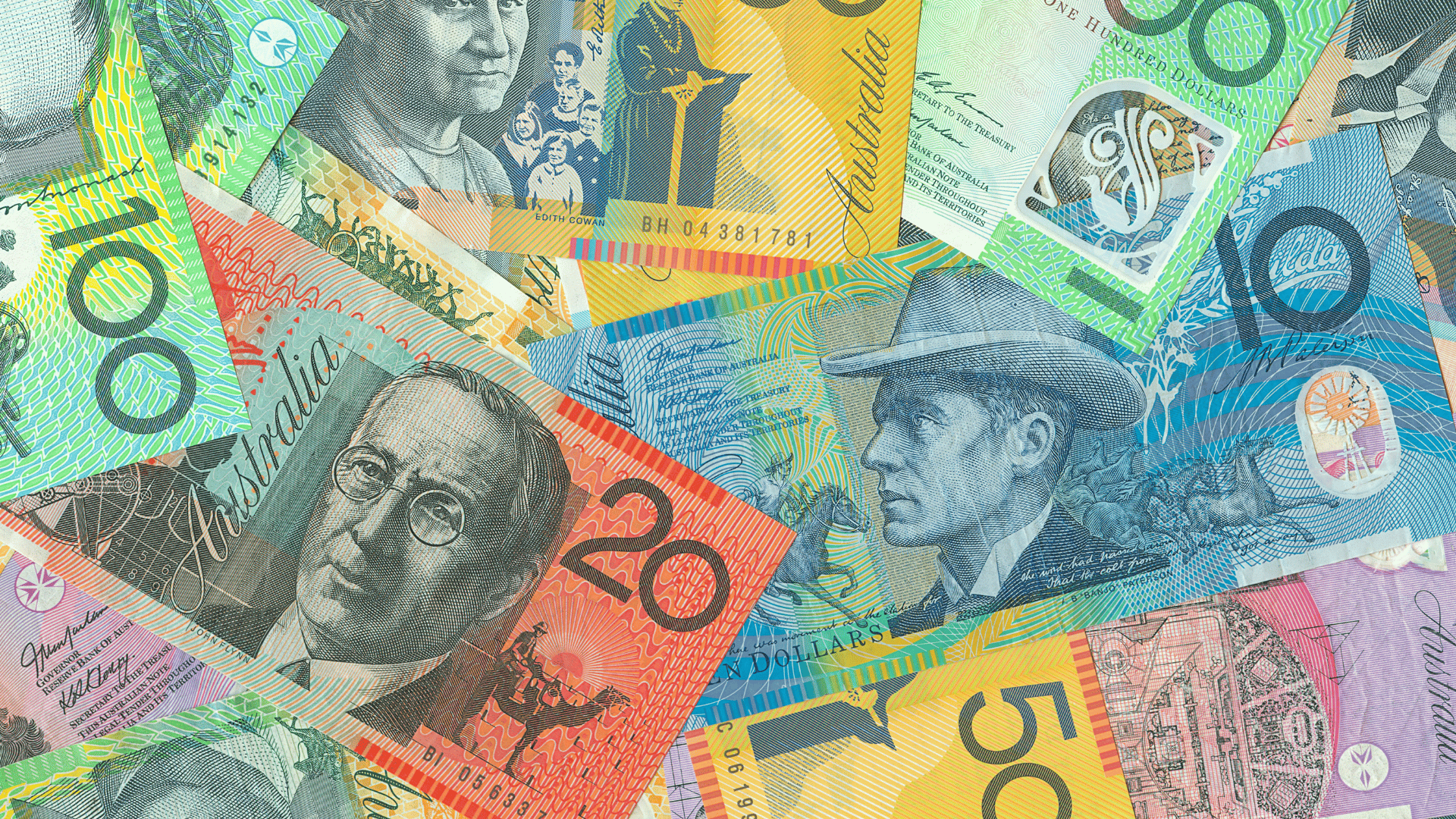
Australia’s polymer banknotes are globally recognized for their innovation. The series includes portraits of influential Australians such as David Unaipon, an Aboriginal inventor and writer, and Edith Cowan, a social reformer.
Each note features native flora and fauna, like the wattle and black swan, alongside transparent windows and tactile features for accessibility.
Australia was the first country to adopt polymer banknotes nationwide in 1988, setting a global standard for durability and security.
Related: How To Tip Around the World
New Zealand
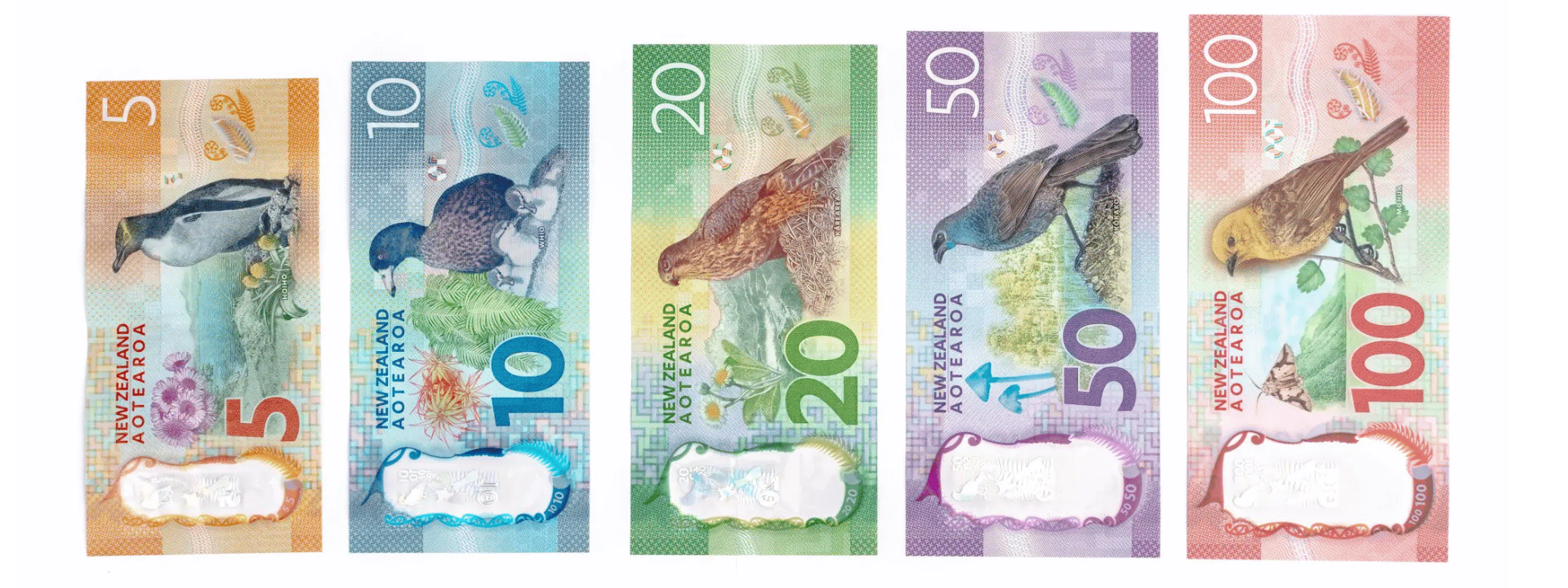
New Zealand’s banknotes celebrate its natural beauty and cultural heritage. The $5 note features Sir Edmund Hillary, the first person to summit Mount Everest, symbolizing his status as a national icon and adventurer. The reverse shows a yellow-eyed penguin, or hoiho, one of the world’s rarest penguins.
Māori patterns and native plants appear throughout the series as well. Māori are the Indigenous people of New Zealand, and their language and symbols are increasingly integrated into national identity.
Philippines
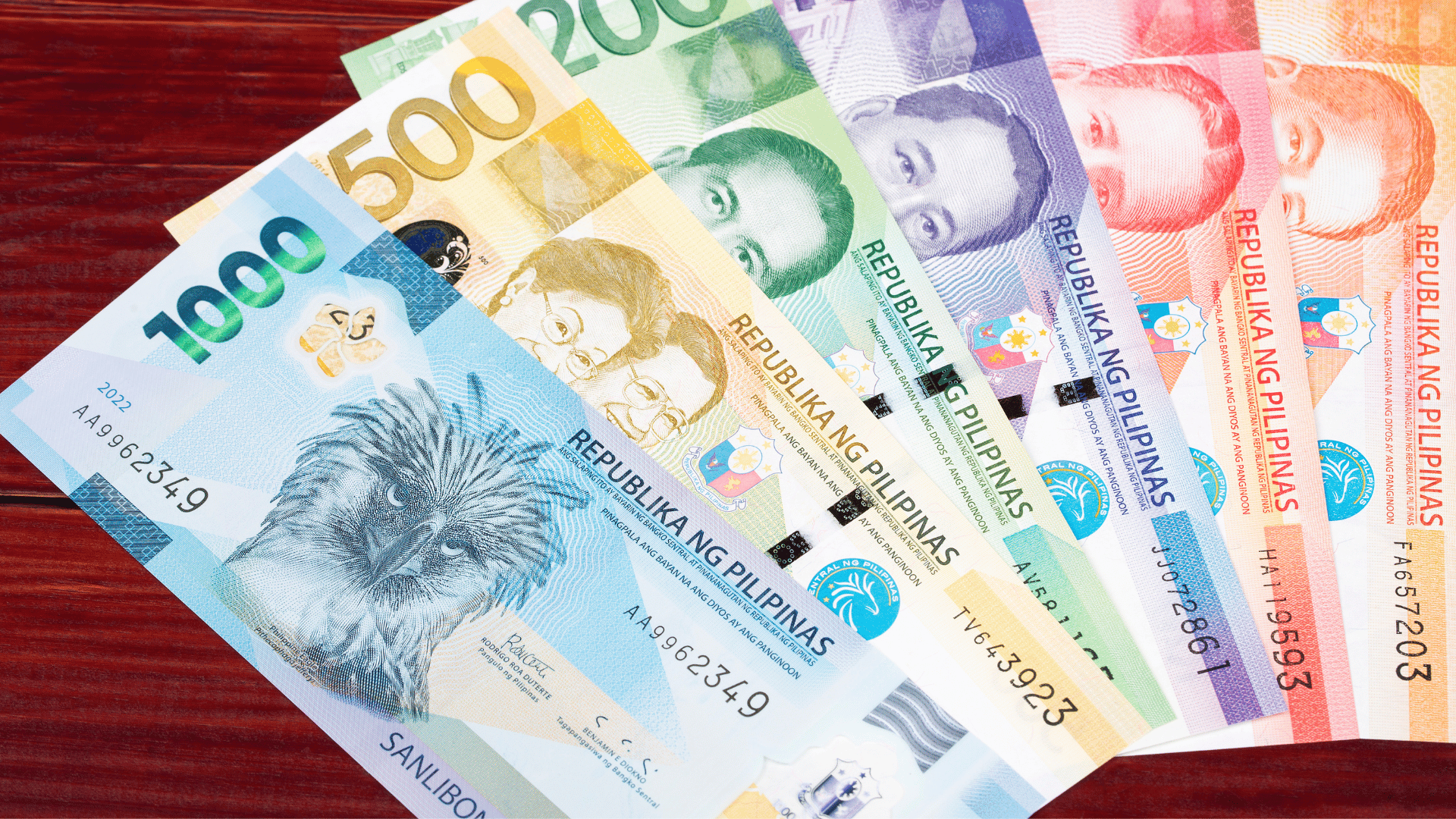
The Philippines recently introduced a new polymer series starting with the 1000-peso note, which features the critically endangered Philippine eagle. This marks a shift from traditional portraits of national heroes to symbolic representations of nature and heritage.
Older notes in the series include figures like Jose Rizal and Apolinario Mabini, alongside scenes of historical events such as the declaration of independence.
Currency Tip: In the Philippines, cash is crucial for everyday travel. Jeepnys, tricycles, and ferries almost always require pesos, and many island destinations have limited card access.
Aruba

Aruba’s florin notes are some of the boldest in the world. Traditional portraits like royals and national figures are absent. Instead, the notes feature wildlife such as the burrowing owl, frogs, fish, and local snakes. The style is abstract and geometric, almost like origami folded into currency.
The series was designed by Aruban artist Evelino Fingal and won international acclaim for its originality and cultural depth.
Europe

The euro is a rare example of a multi-country currency, used across 20 EU nations. To stay neutral, the notes depict fictional bridges, windows, and gateways, each representing a different architectural era.
26+ Countries and Territories that Use the Euro
The 20-euro note shows Gothic arches and stained glass. The 100-euro note features Baroque elements.
The euro’s design was chosen through a public competition, and these symbolic structures represent openness and cooperation across borders.
Remember to order currency before you fly! Over 80 currencies covering 120 countries available for home delivery or pick up at a branch near you.
Currency Exchange International (CXI) is a leading provider of foreign currency exchange services in North America for financial institutions, corporations, and travelers. Products and services for international travelers include access to buy and sell more than 80 foreign currencies, gold bullion coins and bars. For financial institutions, our services include the exchange of foreign currencies, international wire transfers, purchase and sale of foreign bank drafts, international traveler’s cheques, and foreign cheque clearing through the use of CXI’s innovative CEIFX web-based FX software www.ceifx.com



